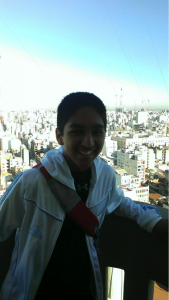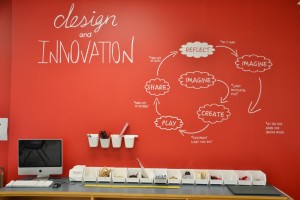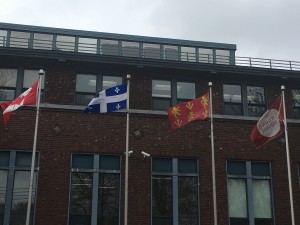 On June 21, I took a 13-hour flight to Buenos Aires, Argentina. Argentina is such a great place with a lot of amazing people. So far I am having a great time and learning more about Argentine culture. I am very happy here in Argentina and I’m sure this feeling will last for the entire trip.
On June 21, I took a 13-hour flight to Buenos Aires, Argentina. Argentina is such a great place with a lot of amazing people. So far I am having a great time and learning more about Argentine culture. I am very happy here in Argentina and I’m sure this feeling will last for the entire trip.
I’ve made many new friends at Belgrano Day School. Most are in my classes, but there are also some people I met during lunch and other activities. Everyone at BDS is very nice and welcoming. Whenever I enter a new class, the students give me a place to sit, the teacher introduces them to me and then lets me introduce myself to the class. There are six other exchanges currently at the school with me, all from different places in the United States: Colorado, North Carolina and New York. I am the only Canadian and the only one from my school.
The Belgrano Day School campus is much like LCC. They are both day schools and have a similar sized campus (though LCC is bigger), but instead of having fields on campus, when we have gym class we take a 30-minute drive to the fields that the school owns.
I have done a lot of different things, such as a walking tour of the city, visiting different neighbourhoods, and watching the school play, which was utterly amazing. Over 100 students joined the musical play, The Wedding Singer, and it was extremely well done.
The food is also very good in Argentina with a lot of meat products, such as steaks, milanesas and asado, Argentine dishes. Their desserts are also very good. They have medialunas which look like croissants but taste a bit different, and also alfajores, a cookie filled with dulce de leche, their version of maple syrup.
The main differences between Canada and Argentina are that there is no snow in the winter, the class setup, and the driving.
In Buenos Aires, even during the coldest time of year, July (yeah, that’s surprising), you will not find a trace of snow anywhere. This is not how I imagine winter, since in Canada temperatures can go down to -40º Celsius.
The class setup is different in that students stay in the same class and teachers change classes. There are some classes that they have to move for, such as art, music and lab, but they mostly keep the same classroom. The school day starts at 8:15 am but ends at 4:05 pm. Eight hour school days instead of seven! There are many classes that are in Spanish, but I didn’t choose them as there was enough Spanish being spoken in the English classes and my Spanish is not quite up to par with theirs. Each period is 40 minutes and are in groups of two, so if you don’t have lunch during that group of two, you have the same class for 80 minutes instead.
Finally, the driving is very different as well. In Canada, most people are respectful of pedestrians, but in Argentina you better watch out because they will not stop for you. The bus drivers are crazy as they rarely obey street signs and don’t look out for people walking.
I am having a lot of fun and I am glad I have much longer to stay. I have enjoyed going everywhere whether it is to the top of a lighthouse in the middle of the city with the other exchanges, or to a different neighborhood where the walls have graffiti art on them. I am truly having an amazing time in Argentina. – Avinash Lal ’19, Exchange Student at Belgrano Day School

 I love Post-it notes! There are always a lot of them stuck on things around my office workspace and they help keep me organized and focused. Post-it Notes are so simple and the story of their creation is also a fantastic symbol of innovation and the impact of innovative thinking.
I love Post-it notes! There are always a lot of them stuck on things around my office workspace and they help keep me organized and focused. Post-it Notes are so simple and the story of their creation is also a fantastic symbol of innovation and the impact of innovative thinking. I have been in Australia for two weeks now, and I am thoroughly enjoying my stay. At first, it is a bit tough to get used to being in a foreign country on the opposite side of the world, after spending around 24 hours on airplanes. A few days in, however, thanks to my welcoming Australian family and my fairly rapid adjustment to the 12-hour time difference, I began to feel comfortable in my new home. Now, I can’t believe I’m getting close to being halfway through my time here.
I have been in Australia for two weeks now, and I am thoroughly enjoying my stay. At first, it is a bit tough to get used to being in a foreign country on the opposite side of the world, after spending around 24 hours on airplanes. A few days in, however, thanks to my welcoming Australian family and my fairly rapid adjustment to the 12-hour time difference, I began to feel comfortable in my new home. Now, I can’t believe I’m getting close to being halfway through my time here. 



 If you walk by the front door of LCC’s main school building, you will note that we proudly fly four flags: Canada, Québec, LCC and Round Square. The final one requires some consideration. Although we are a member of many school associations, Round Square is more than a membership; it represents an ethos that underscores our approaches to education. Why is this significant?
If you walk by the front door of LCC’s main school building, you will note that we proudly fly four flags: Canada, Québec, LCC and Round Square. The final one requires some consideration. Although we are a member of many school associations, Round Square is more than a membership; it represents an ethos that underscores our approaches to education. Why is this significant?